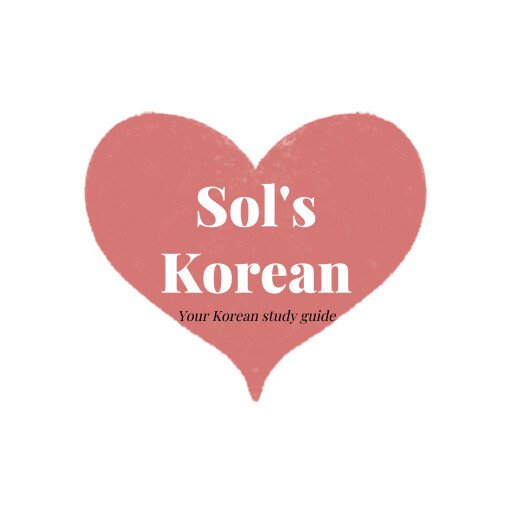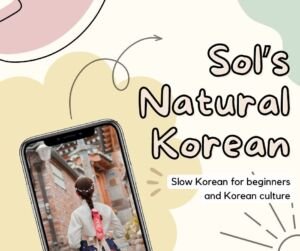Korean listening practice #3 Weekend-routine
Welcome to Part 3 of our Korean listening practice series!
Today, we’ll focus on expressions related to weekend routines, offering you a wealth of useful phrases for your everyday life.
< How to study>
1. Get to know important vocab and become acquainted with grammar concepts.
2. Watch the video without subtitles initially, then review with subtitles.
3. Listen repeatedly and mimic the speaker. Aim to listen at least once daily until you’re comfortable with the sentence structures and expressions.
Vocabulary list
| 눕다 | to lie down |
| 가끔 | sometimes |
| 혼자 | alone |
| 도서관 | library |
| 어렵다 | to be difficult |
| 청소기(를) 돌리다 | to vacuum |
| 설거지(를) 하다 | to do the dishes |
| 빨래(를) 하다 | to do laundry |
| 쓰레기 | trash |
| 버리다 | to throw out |
| 마다 | every |
| 장(을) 보다 | to go grocery shopping |
| 시키다 | to order |
| 다음날 | next day |
| 항상 | always |
| 다시 | again |
Grammar points
| 고 | and (only for verbs, adjectives) |
| (이)나 | or (only for nouns) |
| 거나 | or (for verbs, adjectives) |
| 아/어/해서 | because, and |
| (으)면 | if, when |
| -(으)려고 하다. | try to, plan to |
| 지만 | but (only with verbs, adjectives) |
| 는데 | but, background information |
| -ㄴ/은 후에 | after + verbs |
| -(으) 면서 | while |
| -으면 좋겠다 | I wish/ I hope |
| -고 싶어요 | want to |
Put your best effort into understanding the video as you listen.
And remember to mimic it too!
This practice will aid in cultivating a natural Korean accent and tone.
(The script is down below!)
<script>
주말에는 보통 뭐해요?
What do you usually do on weekends?
주말에는 조금 늦게 일어나요. 아침 9시나 10시에 일어나요.
I get up a little late on weekends. I wake up at 9 or 10 in the morning.
주말 아침에는 누워서 휴대폰 보는 것을 좋아해요.
On weekend mornings, I like to lie down and look at my phone.
가끔 친구들과 약속이 있어요.
Sometimes I have plans with my friends.
친구들과 주로 카페에 가거나 식당에 가요.
I usually go to cafes or restaurants with my friends.
친구를 안 만나면 카페에 혼자 가서 책을 읽어요.
If I don’t meet a friend, I go to a cafe alone and read a book.
가끔은 도서관에서 한국어 공부도 하려고 해요.
Sometimes I try to study Korean in the library.
한국어 공부는 어렵지만 재밌어요.
Studying Korean is difficult but fun.
일요일에는 집에서 잘 안 나가요.
I don’t really go out of my house on Sundays.
주로 집 청소를 하려고 해요.
I usually try to clean the house.
청소기를 돌리고 설거지를 하고 빨래도 해요. 쓰레기도 버려요.
I vacuum, do the dishes, and do the laundry. Throw away the trash, too.
2주마다 장을 봐요.
I go grocery shopping every two weeks.
주로 어플로 시키는데, 바로 다음날 도착해요.
I usually order it on the app, but it arrives the very next day.
청소를 한 후에는 맛있는 음식을 시켜(서) 먹어요.
After cleaning, I order delicious food.
밥 먹으면서 영화나 넷플릭스를 봐요.
I watch movies or Netflix while eating.
그리고 침대에 다시 누워요. 나는 누워있는 것이 좋아요.
And I lie back in bed. I like to lie down.
항상 주말이였으면 좋겠어요. 월요일에 다시 일하고 싶지 않아요.
I wish it were always weekends. I don’t want to work again on Monday.
<Korean script>
주말에는 보통 뭐해요?
주말에는 조금 늦게 일어나요. 아침 9시나 10시에 일어나요.
주말 아침에는 누워서 휴대폰 보는 것을 좋아해요. 가끔 친구들과 약속이 있어요.
친구들과 주로 카페에 가거나 식당에 가요. 친구를 안 만나면 카페에 혼자 가서 책을 읽어요.
가끔은 도서관에서 한국어 공부도 하려고 해요. 한국어 공부는 어렵지만 재밌어요.
일요일에는 집에서 잘 안 나가요. 주로 집 청소를 하려고 해요.
청소기를 돌리고 설거지를 하고 빨래도 해요. 쓰레기도 버려요.
2주마다 장을 봐요. 주로 어플로 시키는데, 바로 다음날 도착해요.
청소를 한 후에는 맛있는 음식을 시켜(서) 먹어요. 밥 먹으면서 영화나 넷플릭스를 봐요.
그리고 침대에 다시 누워요. 나는 누워있는 것이 좋아요.
항상 주말이였으면 좋겠어요. 월요일에 다시 일하고 싶지 않아요.
<English script>
What do you usually do on weekends?
I get up a little late on weekends. I wake up at 9 or 10 in the morning.
On weekend mornings, I like to lie down and look at my phone.
Sometimes I have plans with my friends. I usually go to cafes or restaurants with my friends.
If I don’t meet a friend, I go to a cafe alone and read a book.
Sometimes I try to study Korean in the library. Studying Korean is difficult but fun.
I don’t really go out of my house on Sundays. I usually try to clean the house.
I vacuum, do the dishes, and do the laundry. Throw away the trash, too.
I go grocery shopping every two weeks. I usually order it on the app, but it arrives the very next day.
After cleaning, I order delicious food. I watch movies or Netflix while eating.
And I lie back in bed. I like to lie down.
I wish it were always weekends. I don’t want to work again on Monday.
You can also find this on Spotify/Google Podcasts.
Listen to it frequently whenever you have some spare time.
Listening is a crucial aspect of learning Korean, serving as one of the most effective methods when combined with speaking (mimicking) and writing.
By integrating these skills, you can enhance your understanding and fluency in the language. Throughout my blog, you’ll discover a wealth of useful materials to support your learning journey.
So, don’t hesitate to explore and take advantage of the resources available here. Remember, consistent practice and exposure to Korean will lead to significant progress.
Keep up the great work, and enjoy your learning adventure!
If you’re looking to study grammar, feel free to visit here!
For additional resources, visit my YouTube channel too!




